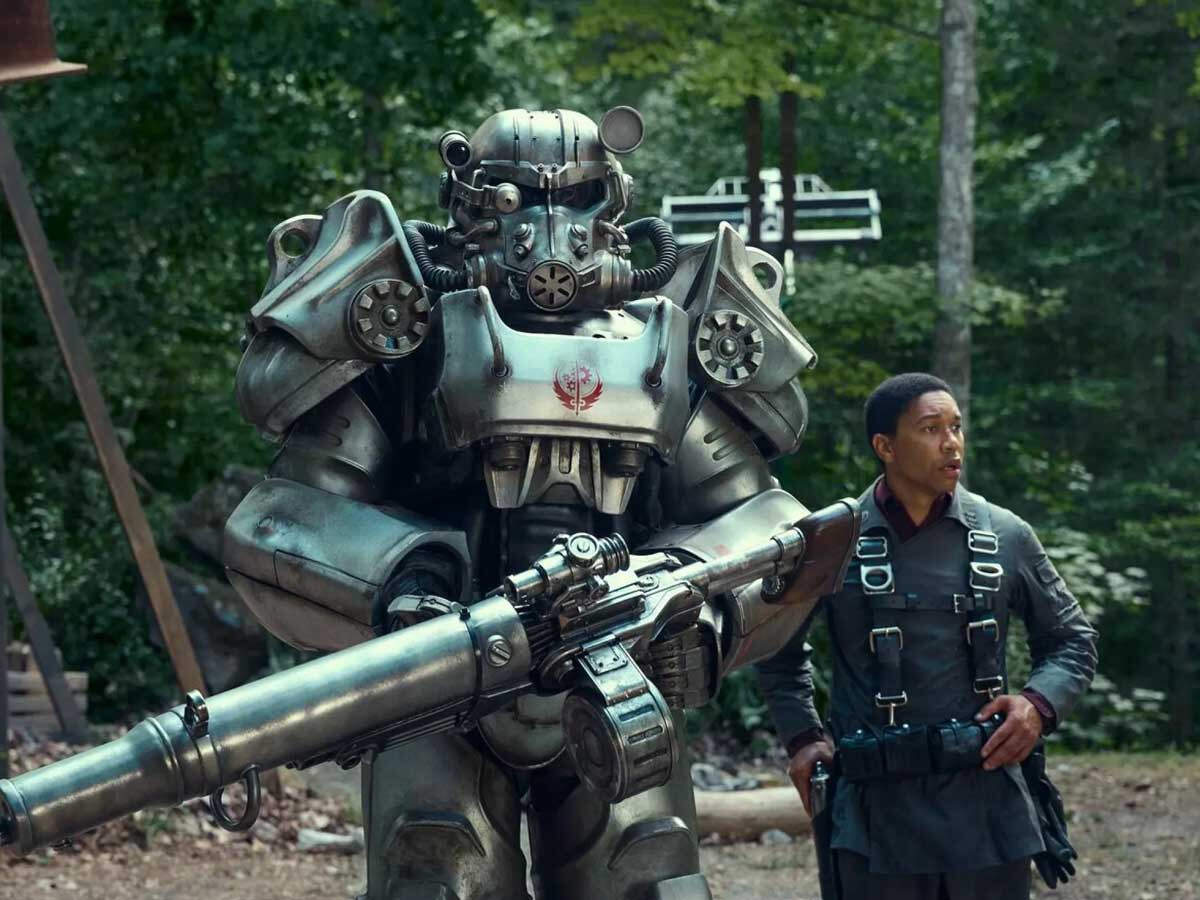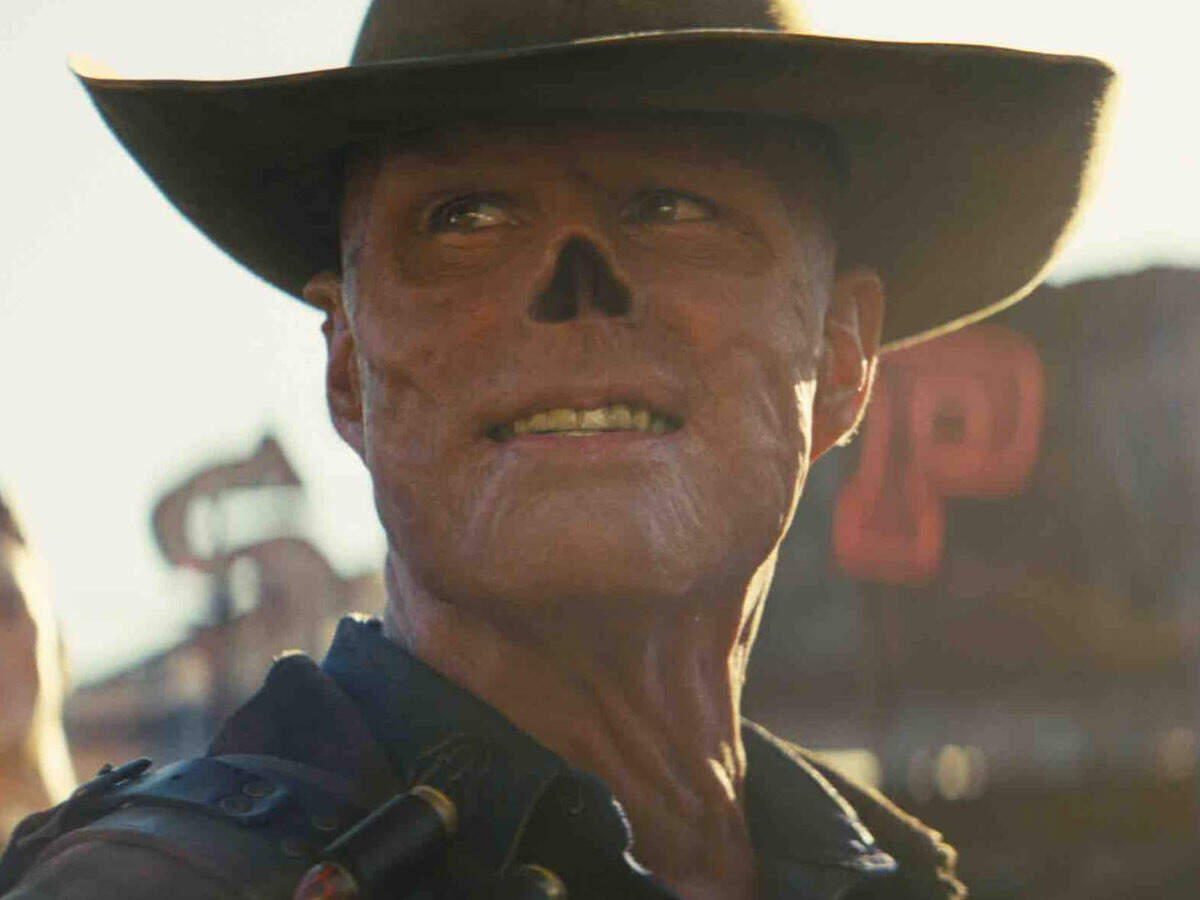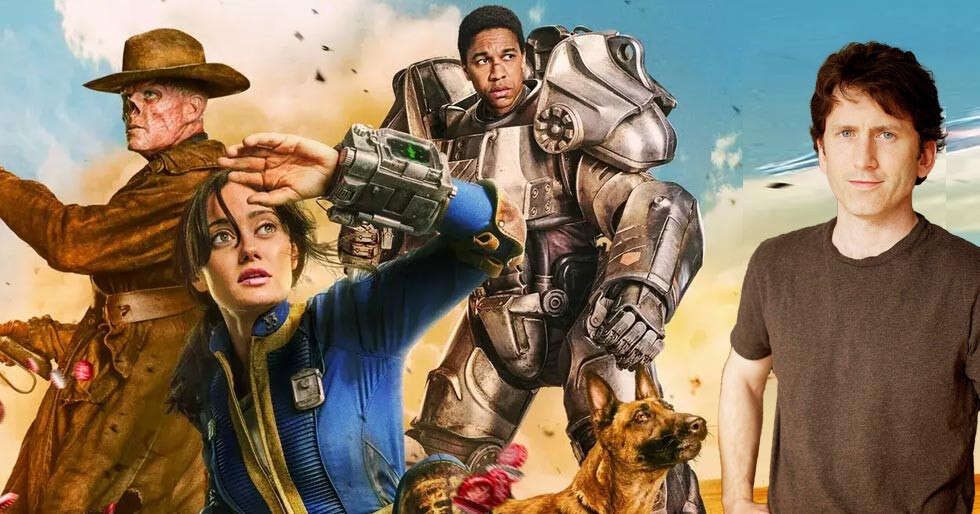It seems to be a good time for video game adaptations with studios acknowledging the endless possibilities of live-action movies and shows based on beloved franchises. Fallout, one of the most successful games of all time now has an eight-episode series with Jonathan Nolan and Lisa Joy onboard as producers alongside Graham Wagner and Geneva Robertson-Dworet. Game developer Todd Howard who also serves as executive producer knew that the world of Fallout is the main character. Adapting the games with an original script rather than translating straight from the games, allowed the creative team lots of wiggle room and the result is a pretty bold series that explores the lore of Fallout.
In an exclusive interview with Filmfare, Todd Howard opened up about bringing Fallout to life, the video game movie curse and more.
Back when you started the Fallout games, did you ever imagine that it would turn into this lavishly mounted TV show?
Not at all. I’ve just been overjoyed seeing it come together. Stepping onto the set, seeing the world come alive, where it’s completely real, and then seeing it on the screen with the job they’ve done has been surreal. We’re fans as well. So for us, it’s been a huge treat.
At what point during the talks for this show did you decide that it’s time to finally begin working on it with Jonathan Nolan, Lisa Joy, Geneva Robertson-Dworet and more?
I had talked to a lot of people who had reached out to do a movie or a show of Fallout over a long period of time dating back to 2009. I remember my first meeting on something like this and kind of just took a long view and I was such a fan of the work that Jonathan had done both in movies with Dark Knight and Interstellar and then seeing Westworld. He had done a couple of interviews where he had mentioned video games and one of the games that I had done. I thought, “I’d like to have somebody reach out to him. If we’re going to do this, he’s kind of my dream choice. And I never talked to him. Then somebody reached out and we connected and we hit it off right away. I just felt right. This is definitely the creative partner to do this. That’s why I wanted to do something new and not translate an existing Fallout game. It’s been an awesome experience for me.
Why did you go for an original story over adapting from an existing Fallout game?
Well, it’s just how I view the franchise – each game is a chapter, everything we do is a chapter that moves the timeline a little bit, is its own unique thing. Every time I thought about translations, I felt like when you play a game, you are that character, you have your own view of it. As a fan too, I would want to see something new, that’s set in the world of Fallout. The main character of Fallout really is the world. It’s also about giving other creatives, that you really respect and trust the chance to see what they can do with it as well.

What were some of the ground rules you laid down before going into this project?
Good question. There was a whole page. There’s many notes there. I think the main one was to be authentic to the world of Fallout. I also wanted them to make it authentic from a storytelling perspective. Now with each game, we move that forward. We’re going to make changes to the world or what happens or what happened or fill in some blanks. As the showrunners go to do that, we made sure we’re in sync and had conversations. They were able to show more of what happened in the past in the TV show, and sort of filled out that lore and we were on the same page as far as what happened, what could have happened. There’s so many great things there that I think are going to be a treat for Fallout fans.
Having watched the first episode on the big screen, one can see the level of detail. Did you consider adapting Fallout as a movie instead of a show?
That was how it originally came up all that time ago, 15 years ago, as a movie. But when I looked at it, I honestly felt that trying to compress the world and the games that we have shown into like an hour-plus thing wasn’t the right approach. It needed more time. It needed that landscape. And as TV, I’ll call it big budget high profile television, was really maturing. So we felt, “Hey, this is the right approach.” And you saw it on a big screen, that was just awesome.

How did you go about casting Ella Purnell, Aaron Moten and Walton Goggins?
That was something that Jonah, Geneva, Graham and others spent a lot of time on, the casting and had a good view of who they wanted. I’m pretty sure that The Ghoul role was written with Walton in mind. I remember getting those scripts and them saying, this is who we have in mind. He’s awesome in that role. But they all did an incredible job. And I think what’s great about those characters is that for viewers, whether you’ve played the game or you’re new to the franchise, can look at that and see a bit of yourself in one of them or ask yourself, what would I do in their shoes? They all did a fabulous job.
What was your first reaction to seeing the actors suited up for the first time?
I met them in person first. I’ve worked with a number of actors on the gaming side. The more you see them turn it on for the camera, the more respect you have for their skill and talent. I don’t think fans or people who don’t get involved in that really have an appreciation for what goes into that, how talented they are and how hard they work. The hours are long. They have to turn it on every time, action, action, action.
Was there a particular sequence that stood out for you?
Lucy exiting the vault. In the games, that’s always a big one. And I think it’s that moment. They built the door for real. That shot when she comes out, which they shot in Namibia is mostly a practical shot. It is incredible.
Video game adaptations are usually cursed, the Last of Us was a rare gem. What are your thoughts on that?
We were past shooting our series when I watched Last of Us which is a game that I loved. Last Of Us’ story is so strong, you kind of could see that, “Okay, this would make a good movie.” The game just works if you go on YouTube and just watch the game cutscenes. That wasn’t the case for us. Open worlds are very hard to translate, which is why we took the approach that we did. And I think you’re seeing more video games get adapted at a high level because the creatives, the people making these things, grew up with video games. They’re just another part of the entertainment. They consume movies and TV and books and music and gaming. So I’m very hopeful that we’re going to see more as well.
Fallout is currently streaming on OTT.

